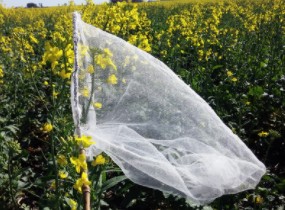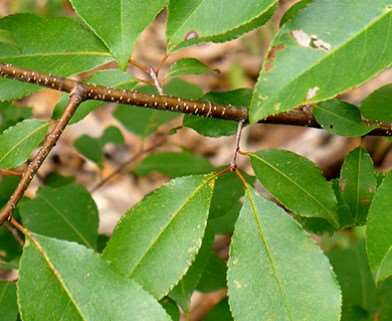By Bruce MacKellar

Severe thunderstorms developed across southwest Michigan Friday morning, July 7, 2017, with high winds causing widespread damage to trees, homes and other structures. As growers are out cleaning up storm damage, Michigan State University Extension advises livestock producers to be aware that some of the storm-damaged trees may pose a livestock poisoning risk.
The leaves of wild black cherry trees, which are a very common fencerow and woodlot species in southwest Michigan, can cause a lethal poisoning risk if grazing animals consume wilted leaves. The toxic component in the leaves is prussic acid, a hydrogen cyanide toxin that is only formed when glycosides in the leaves are combined with hydrolytic enzymes. Under normal circumstances, the two components are stored in separate tissues, but can become poisonous in storm-damaged wilted cherry leaves.
